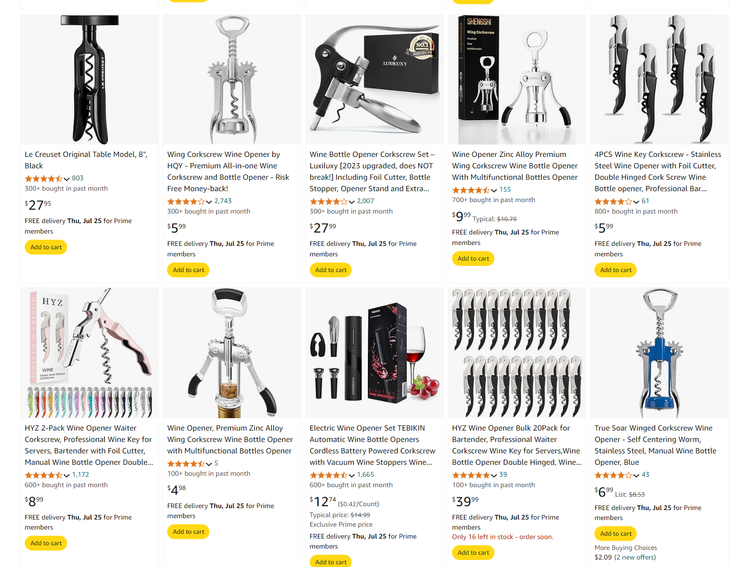The Stoic Career Path

I personally experienced the ambition to do more, achieve more, and to advance my career. It took me more than a decade to arrive at a more holistic view of career management. Here's what I learned.
Although I originally wrote this with in-house lawyers in mind, I trust anyone having deep thoughts about their career may benefit.
Focus First on Finding Satisfaction
I will start by encouraging you to focus on finding happiness and satisfaction in life. This need not and should not be tied to rigid career goals. We are ambitious because we think this will bring us happiness, but we make ourselves unhappy in the pursuit of our ambitions. If we first create the foundation for satisfaction in life, we can approach our ambitions in a different way.
I had this thought after finding out that attorneys have one of the lowest satisfaction rates of any job, at least in the United States. And here's something even more interesting: increasing responsibility and higher income for lawyers has almost no correlation with their happiness and well-being. That suggests there is something more to satisfaction than traditional career progression.
Career Ambition Can Sabotage Your Satisfaction
There is a potential conflict between making progress in your career, which requires you to think ahead and try to change your situation, and being happy and satisfied right now in your daily life. If you are too focused on the future, you can become unhappy with your current situation and so fail to bring your full effort and talents to your current job. This is doubly unfortunate, because not only do you make yourself unhappy, but you are less likely to advance if you don't bring your best to your current job.
Happiness Enhances Your Effectiveness
In contrast, persons who truly value what they have, and give their best at what they are doing, are both happy and are performing well. Happy, positive people engage well with their colleagues, which makes them more likely to be considered for promotion. Similarly, people who bring their best to their current jobs every day are more likely to be given greater responsibility, which also leads to promotion.
Some Time-Tested Advice
The Roman stoics, but also Buddhist and Zen philosophers, have some excellent advice for us to manage this dynamic.
Firstly, on being happy with your current situation, or what I call "be happy with what you have and don't be sad about what you don't have":
It is an invincible greatness of mind not to be elevated or dejected with good or ill fortune. A wise man is content with his lot, whatever it be – without wishing for what he has not. (Seneca)
Be content with what you have, rejoice in the way things are. When you realize there is nothing lacking, the whole world belongs to you. (Lao Tzu)
Next, on paying attention to what is in front of you, what I call "do a good job in your current job":
If you work at what is before you, following right reason seriously, vigorously, calmly, without allowing anything else to distract you, expecting nothing, fearing nothing, but satisfied with your present activity according to nature, you will live happy. (Marcus Aurelius)
Do not dwell in the past, do not dream of the future, concentrate the mind on the present moment. (Buddha)
Ambition Has A Downside
And if you follow this line of thought further, you realize that ambition for its own sake may be harmful.
Who said it is necessary or good to chase after bigger jobs, more responsibility, more pay? Who are you doing it for? What will your striving bring you? And what will your ambitions cost you in terms of hours of the day, time spent with family and friends, and being true to your deeply held values? I refer to this as "decide for yourself what success means and what's important to you":
No one is compelled to pursue prosperity at top speed; it means something to call a halt instead of pressing eagerly after favoring fortune. (Seneca)
Wealth consists not in having great possessions, but in having few wants. (Epictetus)
More modern philosophers have carried the torch onward:
Many a forenoon have I stolen away, preferring to spend thus the most valued part of the day; for I was rich, if not in money, in sunny hours and summer days, and spent them lavishly; nor do I regret that I did not waste more of them in the workshop or the teacher's desk. (Thoreau)
Your time is limited, don’t waste it living someone else’s life. Don’t be trapped by dogma, which is living the result of other people’s thinking. Don’t let the noise of other’s’ opinions drown out your own inner voice. (Steve Jobs)
A Personal Journey
As mentioned, I was powerfully ambitious in the first half of my career. Actually, I have been ambitious the whole time. But I've learned to manage my ambitions and not let them goad me onwards. Here were some of my personal steps along the way:
- I became the General Counsel of a billion dollar US public company at age 30, which was a wonderful accomplishment. But I still thought I needed to progress, for example to become GC of a bigger company, say a Fortune 500 company or even better a Fortune 50. That's what a career means, right, always planning the next move?
- Ten years in, I went so far as to interview and get offered that next GC position. It was only when I was wrestling with the decision, stay or go, that I really started to reflect on what was important to me. What really brought me satisfaction in my job and my daily life?
- I realized I valued most three things:
(1) the people I work with, as in do I like, trust, and respect them;
(2) the work I was doing, i.e. is it interesting, challenging, valuable; and
(3) the company I was doing it for, or do I have the same values, is the company successful, do I believe in the company's strategy for future success.
I concluded that I would be a great fool to give up what I had right in front of my nose, that I already possessed all the ingredients for happiness and satisfaction. - I declined the shiny new job and spent the next ten years appreciating what I had and doing the best I could in my current job. Along the way, we grew our share price more than 30-fold, outperforming the great majority of public companies, and a few years ago my company joined the S&P 500. (And as an aside, that company I almost joined: their CEO was fired six months later, and within a year they were acquired and no longer exist.)
- A few years ago I chose to retire from my GC role, and not because anyone wanted me to. Well, maybe my direct reports waiting in the wings.... It was a careful, conscious choice arrived at by following the above thought process. Initially, I worked 50% as the Head of Regulatory Affairs, where I oversaw my company’s sustainability program. I got half of my life back to spend on sunny hours and summer days.
- And most recently, I took the other 50% back as well. This was the result of listening to my own inner voice, and realizing that while my wants might be insatiable, my needs are not.
Career Advice
All this said, I do not want to talk anyone out of having ambition or looking for career progression. Far from it. Rather, I want to help you avoid being blindly driven before the whip of ambition without really thinking about what will satisfy you.
Here is some advice that may help you in your career, regardless of where your ambitions take you:
- Always ask for what you want, but don't be upset if you are initially told no. And don't let your ambitions for more make you unhappy with what you already have.
- Be open to opportunity, and take on responsibility and tasks even if they don't fit your pre-conceived idea of what your career path should be.
- Follow continuous improvement principles in all areas of your life, personal and professional. Treat your mistakes as learning opportunities and get stronger as a result.
- Be a model for personal effectiveness practices, which includes healthy work-life balance.
- Be persistent on things that are important to you, never give up. Be agile and resilient, however. Sometimes a door that is shut leads you to another that is wide open.
I've summarized a more comprehensive list of career and life advice in James's Rules for Personal and Professional Success.
Be well.






Member discussion